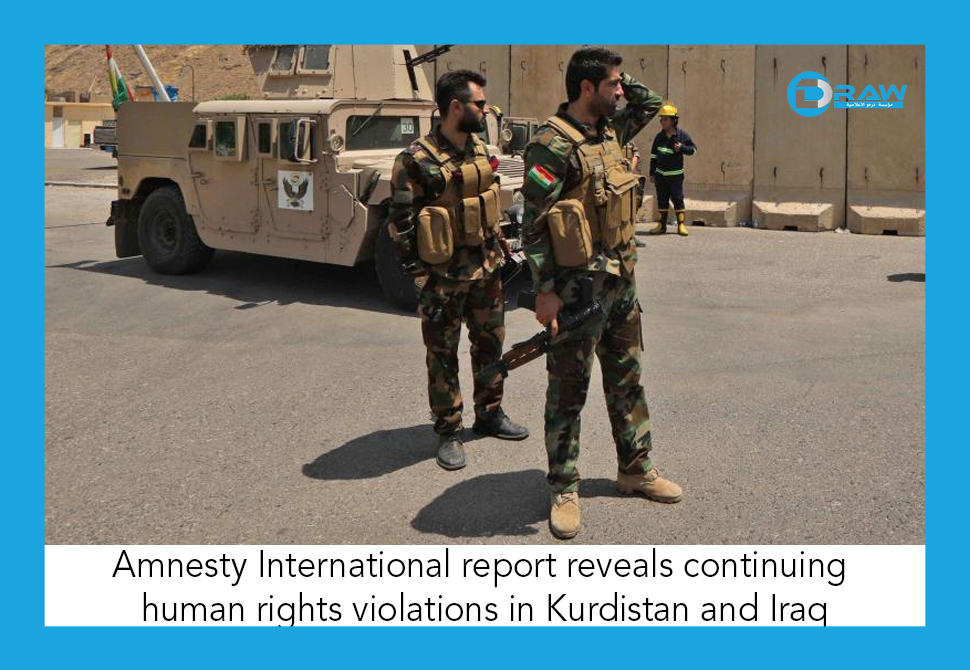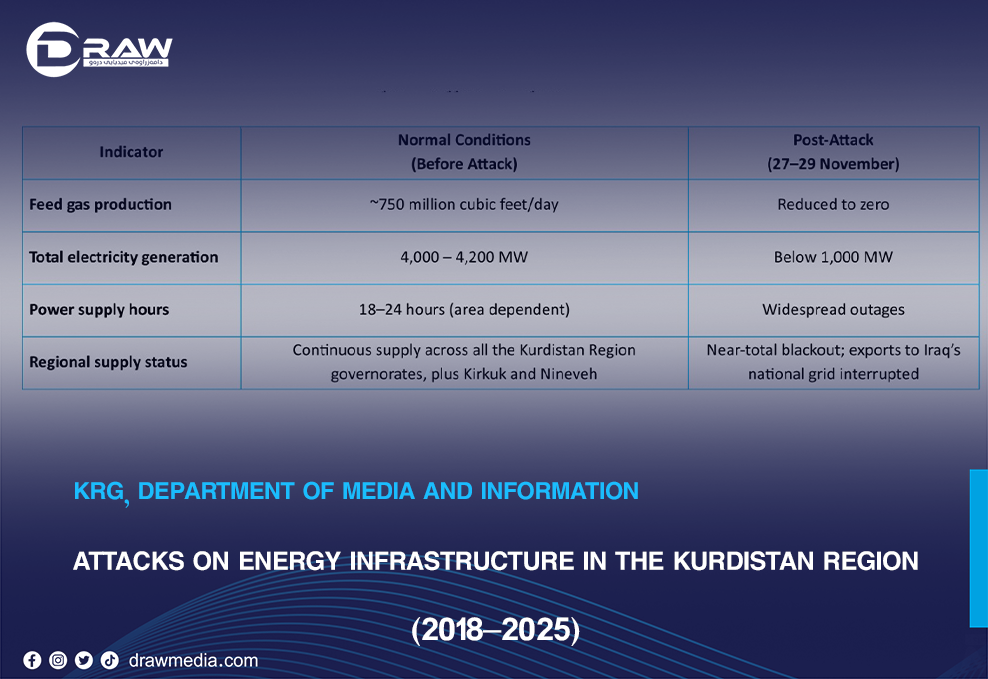Amnesty International report reveals continuing human rights violations in Kurdistan and Iraq

2023-03-28 21:56:56
The Kurdistan Regional Government (KRG) continued to repress freedom of expression and unjustly imprisoned journalists, activists and critics, Amnesty International said on Tuesday.
Amnesty condemned KRG security forces for utilizing vaguely-worded laws to arrest journalists and releasing them only once a pledge is signed to not cover certain incidents.
Iraq 2022
Amid continuing political instability and sporadic clashes between armed actors, dozens of people were killed and thousands more joined the 1.2 million people already internally displaced. Kurdistan Regional Government security forces repressed freedom of expression and peaceful assembly. Impunity continued to prevail for past unlawful killings as well as for torture and other ill-treatment. Reports of gender-based violence increased while state-provided paths to protection remained minimal in both the Kurdistan Region of Iraq and central Iraq. Proposed legislation further threatened LGBTI people’s rights. Hundreds of thousands of internally displaced people continued to face obstacles in accessing vital services and dignified, safe return to their areas of origin. Courts continued to hand down death sentences following unfair trials. The authorities failed to provide adequate support to marginalized communities most affected by droughts, heatwaves and prolonged sandstorms.
Background
A new government was formed in October more than a year after parliamentary elections. The delay was caused by disputes between political parties allied to the Popular Mobilization Units (PMU), which are affiliated to Iraq’s central authorities and were designated as part of the Iraqi armed forces in 2016, and the “Sadr Bloc” of parliamentarians supporting popular cleric Muqtada Al-Sadr, which won the majority of seats. The political impasse occasionally spilled over into armed clashes between rivals. After Muqtada Al-Sadr called on “Sadr Bloc” parliamentarians to resign in August, his supporters and members of the affiliated Saraya al-Salam militia stormed parliament in the Green Zone and clashed with PMU fighters using rockets, mortars and rocket-propelled grenades, leading to tens of deaths and hundreds of injuries. Clashes between Muqtada Al-Sadr’s followers and PMU factions perceived as aligned with Iran spread to Basra city between late August and early September and led to at least four deaths.
Türkiye continued to carry out air strikes and shelling as part of its ongoing military operation targeting members of the Kurdistan Workers Party (PKK) based in northern areas of the Kurdistan Region of Iraq (KR-I). The Iranian Revolutionary Guards claimed responsibility for attacks targeting locations of Kurdish Iranian opposition parties in Erbil governorate. Such attacks led to deaths and displacement.
Sporadic attacks by the armed group Islamic State, which targeted security forces’ barracks and checkpoints, continued in Anbar, Kirkuk and other governorates previously controlled by Islamic State. Media reported Islamic State abductions of at least 10 residents of Kirkuk and Diyala governorates, who were freed after their families paid ransoms.
Freedom of expression and assembly
Kurdistan Regional Government (KRG) security forces continued to repress the right to freedom of expression and assembly.
KRG security forces arbitrarily arrested, prosecuted and imprisoned journalists, activists and perceived critics. Two journalists and three political activists, detained since August 2020 and convicted in February 2021 on national security-related charges, went on three hunger strikes during 2022 in protest at their continued detention, despite a decree issued in February by the KRG president Nechirvan Barzani to reduce their sentence from five to two years.
On 6 August, KRG security forces used tear gas and rubber bullets to disperse peaceful protests in the cities of Erbil and Sulaimaniya in the KR-I against delayed payment of government wages and lack of employment opportunities, resulting in several injuries. Asayish forces, the KRG’s primary security and intelligence agency, briefly detained at least 20 journalists in connection with protest coverage. The New Generation Party, an opposition party that called for protests, reported that Asayish forces arrested dozens of its members at their homes or during the protests in Erbil and Sulaimaniya. After several days in detention, they were released on bail without being informed of any charges.
In September, Asayish forces arrested a journalist working for a media outlet aligned with the opposition during his coverage of a Turkish drone attack targeting PKK fighters in Erbil governorate. He was released the next day without charge after signing a pledge to no longer cover similar incidents. In October, Asayish forces arrested two journalists near Erbil under the vaguely worded 2008 Law to Combat the Misuse of Electronic Devices, used in the past to prosecute individuals for posting content deemed critical of officials. They were released by the end of the month.
The prevailing climate of impunity for armed actors targeting protesters, activists and journalists undermined the right to freedom of expression in central Iraq. In October, armed supporters of Muqtada al-Sadr stormed and destroyed al-Rabiaa TV channel offices in the capital Baghdad after a


.jpg)
.jpg)



.jpg)

.jpg)